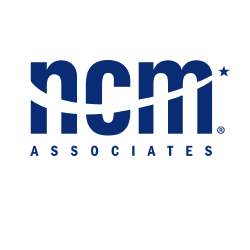For non-auto clients, visit sf.ncmassociates.com.
The Secret to this Dealership’s Success? Employee Ownership

In the retail automotive world, there are many different roads to finding success. Every dealership has its own set of unique challenges they must overcome, and every dealership has the opportunity to apply unique solutions to achieve their vision of success. One of these unique roads come from Roush Auto Group in Westerville, Ohio, where the concept of employee ownership has allowed them to develop a culture of accountability and profitability.
Employee Ownership
Before diving into the nuts and bolts of Roush’s success, it’s essential to clarify what employee ownership is. An ESOP, or employee stock ownership plan, is a tax-qualified, deferred compensation, employee benefit which makes the employees of that company beneficial owners of stock in said company. Meaning, Roush provides its employees with retirement savings through their investments in their stock, at no cost to the worker.
For Roush Auto Group, this journey started in 1991, when they first became an ESOP. The owner of the organization, Edwin “Dubbs” Roush, discovered the existence of employee ownership after extensive discussions with one of the premiere ESOP attorneys in the Columbus, Ohio, area. Through these conversations, Roush saw opportunity. Not only was there a way for his business to sustain a long and promising future, but also a path to ensure the employees who helped build his business were taken care of in the future.
This business model DID NOT, however, mean that the dealership became ownership by committee. Instead, this plan was set up to help the employees buy into the dealership and ultimately benefit from its success. A tide that rises all ships, so to speak.
"The fact that we are all accountable to the people we work next to everyday is really a gamechanger for us."
- Jeff Brindley, President & CEO, Roush Auto Group
Continue reading to watch a video from Jeff and his employees.
How Employee Ownership Helped Culture, Recruitment, and Retention
When we spoke to Jeff Brindley, President of Roush Auto Group, he described extensively how introducing employee ownership to the business had a pronounced impact throughout the dealership. “There are very few opportunities where what you get done every single day makes a difference for you. When the first few people started getting their retirement checks, the employee buy-in really began to hit home.” Of all the changes this made, the most significant benefits to the organization came from their recruitment, retention, and an overall culture shift to improved accountability.
Recruiting
Hiring in the current landscape is a challenge for almost every dealership in North America, especially those seeking the best talent in the market. For Roush, however, it has become a lot easier to find the right talent because of their ESOP business model. “It wasn’t management; it was word-of-mouth that really helped a lot. Over the years, we have had technicians go to Honda training or other events and speak with other individuals in the business. They share stories, talk shop, and the next thing you know, when it comes time for a career change, we are now on the list.”
The ESOP model has allowed the dealership to talk to more people. Employees who have been working for 5, 10, 15 years in the same role see and hear about the ESOP opportunity, and it provides an avenue of opportunity for the talent to find you. These are folks that Roush wouldn’t be able to talk to if the ESOP was not in place. “We have had some big wins because of our ESOP.”
Retention
One of the biggest challenges plaguing the automotive industry is retention. For entry-level positions, this is still a challenge for Roush, as the younger and less experienced folks may not be as concerned about their retirement as their older peers.
What the ESOP message has done, however, is allowed Roush to retain the middle-career level individuals, an area where turnover is a big problem for many dealerships. “We have a lot of sales guys that have been with us for a very long time.”
Culture
Every dealership wants a positive work culture, but when you walk into your job, “You know that the person standing next to you, and the person standing next to them, there is a level of accountability. Employees have a right to hold each other accountable because how other employees perform affects them,” Jeff told us. It means that the service and sales departments have a vested interest in each other, and actively want each other to succeed.
-
As a service manager, it really does matter how many new cars are sold each month.
-
As an F&I manager, it really does matter that our body shop is capturing all of the business available to them.
-
As a new vehicle salesperson, it really does matter that we take in trades at the right prices so that we can make profits in used vehicles.
The culture is now much more big-picture, and the longing to grow and improve profitability became an entire team goal vs. an individualized one.
We paid a visit to Roush Honda to get first-hand stories of their employee owners and to share the successes of their organization in the video below.
